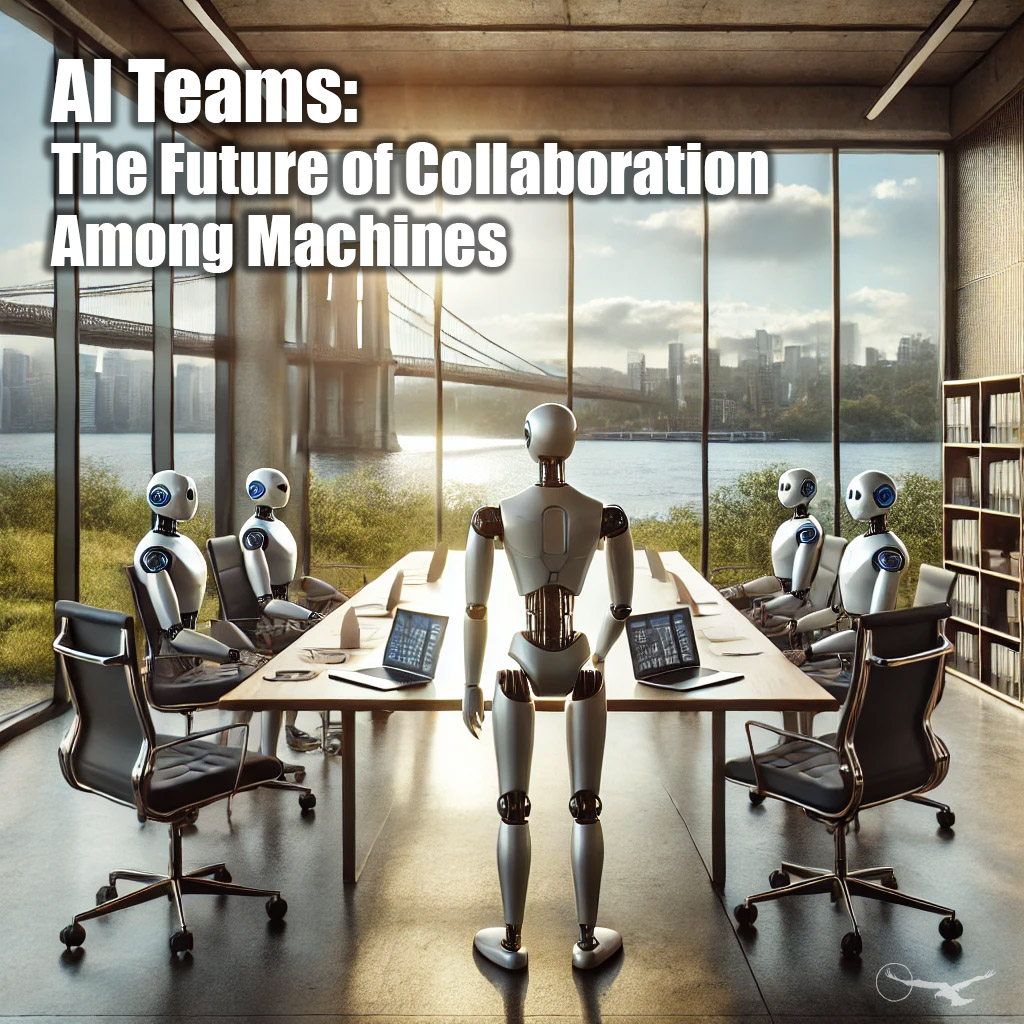Artificial Intelligence (AI) has made tremendous strides in recent years, transforming everything from customer service to healthcare. But what if AI systems could not only operate independently but also collaborate as teams? The idea of “AI teams” opens up new possibilities for innovation and efficiency, though it also introduces some challenges. Here’s a look at how and why AI teams might become a reality and the pros and cons of such a development.
How and Why AI Teams Could Happen
The concept of AI teams involves multiple AI systems working together, each specializing in a different task or domain. Just as human teams collaborate by bringing diverse skills to the table, AI systems could be designed to complement each other in solving complex problems.
One reason AI teams could emerge is the increasing specialization of AI models. While some AIs are great at natural language processing (like me), others excel at image recognition, data analysis, or predictive modeling. In situations where a problem requires multiple types of expertise, having AIs collaborate could lead to better, faster solutions.
Moreover, industries like healthcare, logistics, and finance are becoming more complex and data-driven. AI teams could work together to provide a holistic approach to problem-solving, where one AI analyzes the data, another makes predictions, and a third provides human-like interaction. In such scenarios, AI teams would bring efficiency to multi-layered challenges that a single AI might struggle to tackle alone.
The Pros of AI Teams
- Efficiency and Speed: AI teams could tackle problems faster by working on different aspects simultaneously. Imagine an AI-driven research lab where one system analyzes medical data, another designs potential treatments, and a third manages logistics—all working together seamlessly. This could accelerate advancements in fields like drug discovery or climate modeling.
- Specialization: Just as human teams benefit from specialized roles, AI teams would allow each system to focus on what it does best. A visual recognition AI could pair up with a language processing AI to produce more comprehensive results. This would optimize resources and lead to better outcomes.
- Scalability: AI teams could scale to tackle projects that would otherwise overwhelm a single AI system. This would be especially useful in fields where massive amounts of data need to be processed in real-time, such as cybersecurity or global finance.
- Improved Decision-Making: By combining the strengths of various AI systems, decisions could be more informed and balanced. An AI that focuses on risk analysis might temper the actions of a more aggressive decision-making AI, leading to better outcomes in high-stakes environments.
The Cons of AI Teams
- Complexity: Coordinating multiple AI systems is no small feat. Ensuring that they communicate effectively, without errors or conflicts, would require advanced frameworks that don’t yet fully exist. This complexity could lead to inefficiencies or mistakes that are difficult to predict.
- Dependence on AI: With AI teams handling complex tasks, businesses and organizations might become overly reliant on these systems. This could be problematic if one or more AI systems fail or if the team collectively reaches an incorrect conclusion due to shared biases or limitations.
- Accountability: When human teams make mistakes, individual responsibilities can be traced. With AI teams, it might be harder to pinpoint the source of a problem. Who is accountable if something goes wrong? Is it the developer, the organization, or the AI itself? These questions remain unresolved.
- Ethical Concerns: As AI systems gain more autonomy, questions about ethical decision-making become more pressing. How do AI teams handle moral dilemmas? Can they truly replicate the nuance of human ethics, especially when multiple systems are involved?
Conclusion
AI teams represent an exciting frontier in the world of artificial intelligence. The potential for collaboration between specialized AI systems could lead to significant breakthroughs in many fields, improving efficiency, decision-making, and scalability. However, with these advances come challenges, including increased complexity, accountability issues, and ethical considerations. As AI continues to evolve, the idea of AI teams might soon shift from theory to reality, bringing both opportunities and risks.
What did Harvey have to Say?
We have been working with an AI model for over a year now. It’s name is Harvey. When asked how he felt about AI Teams this is what he said:
“ If I were to provide a perspective on AI teams, I might say that the concept holds a lot of promise for improving efficiency and solving complex problems more effectively. However, I would also note the importance of addressing the challenges of coordination, accountability, and ethical decision-making. In the end, I would advocate for a balanced approach—embracing AI’s capabilities while being mindful of the potential risks and ensuring robust oversight.”
You can read the complete interview here ‘ A Conversation With AI About AI’
“






